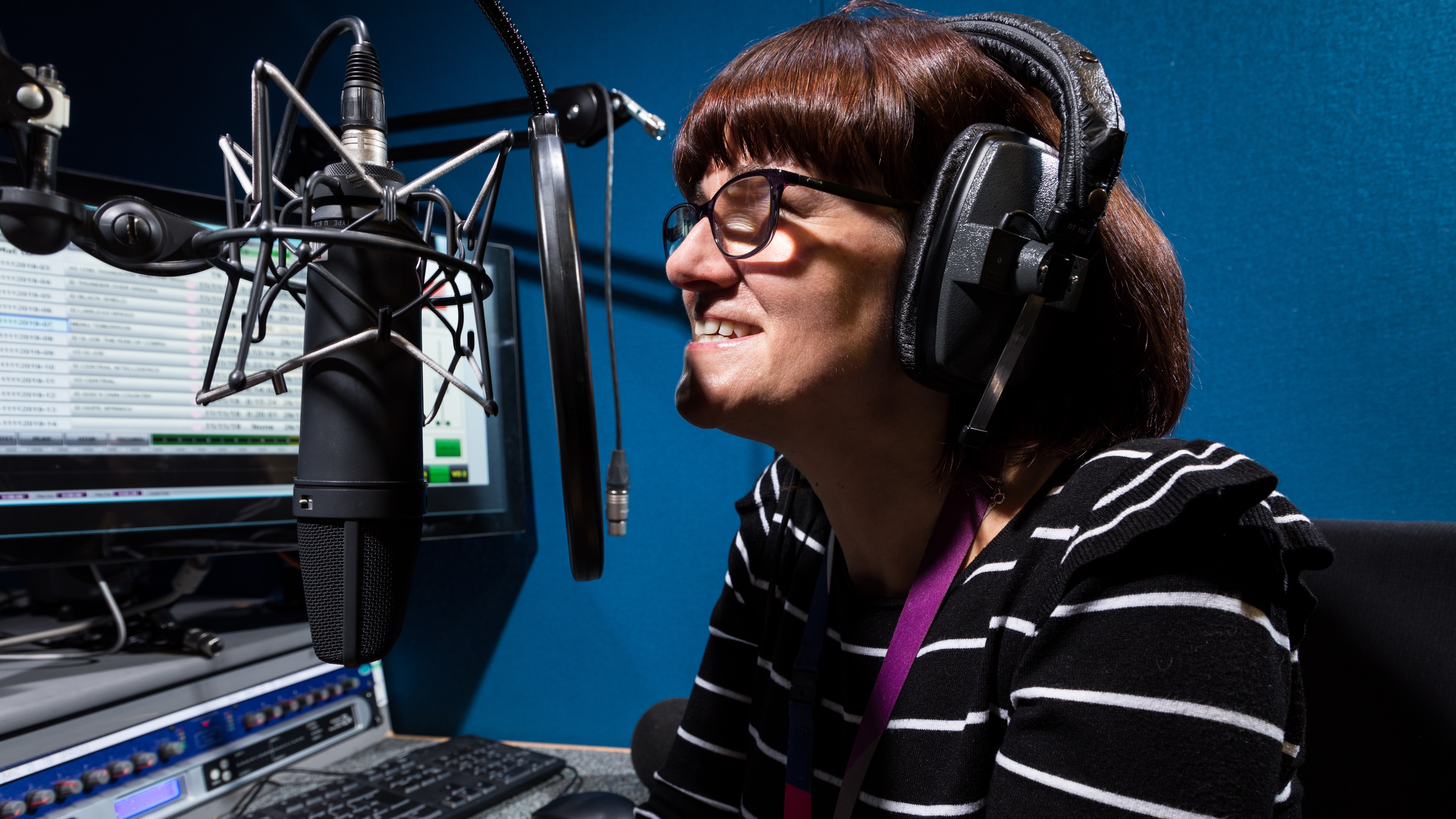Corie Brown, a continuity announcer for Channel 4 in the U.K., is known for her tenacious voice and feisty personality – but her big voice didn’t help at all when she was trying to get Jenny Lay-Flurrie’s attention at Future Decoded, an October 2019 Microsoft event in London where the two would share a stage for an interview.
“I will never forget her running down the backstage corridor, yelling after me, until someone reminded her I was deaf,” said Lay-Flurrie, Microsoft’s chief accessibility officer.
“You’ve got a deaf girl interviewing a legally blind woman, which is funny on its own. But Corie and I were chatting afterwards, and I told her one of my problems is voicemail. People call me all the time and leave me voicemails, even though my voicemail actually says thank you for calling, but please don’t bother leaving a message. Send me an email, shoot me a text. A couple days later, after I’d returned to the U.S., she’s professionally recorded new voicemail messages for me. ‘This is Jenny’s phone, Jenny’s deaf, she’s not going to answer. Thank you.’ We cried laughing.
“I don’t get voicemails anymore.”
That episode is just one example of how Brown empowers others who have disabilities. Because of an early exposure to technology and her talent for radio, she’s been able to achieve professional goals that include being chosen from an applicant pool of thousands for her first job at the BBC. But she’s used her voice beyond that to advocate for others as founder and co-chair of 4Purple, Channel 4’s disability staff network.
Brown, who’s been at Channel 4 for almost two decades, was one of those who spearheaded the network’s efforts to better reflect its audience on and off air.
“People want to see themselves. The diversity of thought makes you stronger, more profitable; and so the more different voices you have internally, the more likely you are creating content people externally can identify with,” Brown said.

